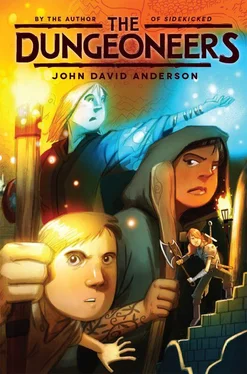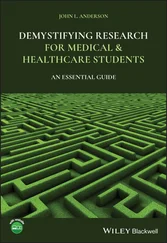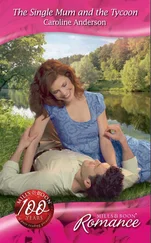So many nights spent mending the holes in their socks, patching the holes in the roof, his father out at his bench, refitting the fine leather boots that noblemen had had made from deer hunted in their own private forests. This week the family would go without sugar and soap both. And probably butter and meat, unless his mother broke down and decided one of the chickens wasn’t worth her eggs. He looked at Celia, hair carefully coifed already this morning, kneeling with her other sisters beside Seysha’s bed. He wondered what would happen if she got sick. If they all got sick. There weren’t enough busted boots in Felhaven to pay for that much medicine, and if there were, his father only had the two hands.
Colm looked down at his own hands, nine slender fingers, then back at his sisters. It wasn’t fair, he thought to himself. There had to be a better way.
“I’m headed out too,” Colm said to no one in particular, then slipped away before his mother could say anything.
He went to his room, slid on his boots, and then escaped out the back door. He sneaked past the barn without his father noticing. It wasn’t difficult. He had eight sisters who stalked him religiously. He was used to having to be stealthy. He was used to not getting caught.
On the way out, he deftly tucked an apple into his pocket for breakfast.
The town square was busy, as it always was during the day. Rove Candorly worked out of his home, but most of the merchants and artisans who settled in Felhaven had set up shop in the center of town. Straw-hatted farmers haggled over the price of wheat and carrots. Bakers, butchers, dressmakers, and perfumers ushered passersby through their doors with spritzes and tugs. Children much younger than Colm huddled together in the dirt, making up games that mostly involved chasing after pigeons. Today a minstrel had set himself up in the very center by the fountain and was strumming out some long-winded tale about a one-handed swordsman who wandered the world in search of the villain who had behanded him. Several dozen people crowded around to listen. Colm found an empty bench on the outskirts. The sun was working hard today, snaking its way beneath Colm’s torn cloth shirt. And yet when he lay down tonight, he would shiver under his one blanket.
Colm sat and sweated and watched.
That was the first step, he guessed. To watch and take note. So many years of spying on his sisters had at least taught him patience. Riches weren’t hard to spot, but Colm needed accessible riches. He started with the shoes. His father’s voice rang in his head: there was a lot you could tell about a man from what he wore on his feet — the quality of the leather, the thickness of the fur. The clothes too, of course. Silks and felts and richly dyed linen instead of rough-hewn wool. Broad and billowing versus skintight and threadbare. He watched people laugh. Tried to get a look at their teeth. Gold fillings or iron or no teeth at all. The polish of the buckles latching their belts. The number of jewels cresting their knuckles. Ribbons or combs. Hair washed or unwashed. Makeup or not. Women who wore makeup were wealthy. Men who wore it, doubly so.
He watched for other things. Gaits and stances. Did they walk slowly, determined, aware of their surroundings, or did they hustle, pushing through the crowd, oblivious to the people they bowled over? Did they keep their eyes on their feet or in the clouds? Were their hands empty, or were they burdened with packages and bags? The more distracted the better, he decided. Also, he had to be able to outrun them. He could already outrun seven of his sisters. Only Kale, with her unnaturally long legs, could best him. No matter how it went, the most important thing was not to get caught. There were punishments for pickpockets, much worse than a sting from an angry bee defending its hive. You could wind up short a finger. Or worse.
Colm looked for swords. Those he wanted to avoid most of all.
He saw one man with an ax slung across his back, standing at least twice Colm’s size. The man held a whole roast chicken in one hand and was tearing into it, spitting out only the bones too big to chew. He looked completely out of place here, and for a moment Colm wondered if he wasn’t one of them — one of the ones he’d heard about. Colm considered just walking behind this man with his clinking chain-mail shirt and steel-tipped boots and picking up the scraps that fell from his beard. But chicken bones wouldn’t pay for a second bottle of medicine. He needed silver, or gold, better still. The contents of one lord’s purse would be enough to feed him and his sisters for a week.
The minstrel finished his song to much applause, and passed his hat around. As the crowd started to disperse, Colm finally found what he was looking for.
The man’s nose was thrust up so high, he couldn’t see what was standing right in front of him. His clothes gave the impression of a gentleman; his bone-white complexion suggested he spent most days indoors, far from hard work. He wore a red tunic and white tights. It was impossible to keep anything white for long in Felhaven, not without constant laundering, and soap was expensive. From one side of the man’s belt hung a dagger, blade barely longer than his own hooked nose, and it was almost enough to convince Colm to keep looking. Except this man didn’t look like he could use the knife for anything other than buttering bread. And besides, on the opposite side from the knife hung the purse, weighty and awaiting.
Colm watched for another moment. Then he slipped into the throng.
The man was walking quickly, shouldering his way through clusters of people, headed, it seemed, to the edge of the square, where the crowd was thinner. Perhaps he had finished the business that brought him here, the business that had fattened the sack tied to his waist. Not too tightly, Colm hoped.
Colm circled around, dodging carts, positioning himself, calculating the distance, keeping a sideways eye on the man’s bobbing head. He would have a second. Maybe two. Any longer, and the man would notice. Colm flexed his four fingers and looked down at his boots, trying not to think about the cobbler who had made them. Instead, he thought of his sisters. Of Seysha sick in bed. Of Celia, who wrote little poems in her head because there was no paper to copy them to. Two seconds. That’s all it would take. Then it would be over, and he would leave.
The gentleman was right in front of him now. Colm listed to the side. He felt a shoulder press against his own.
“Watch it, you little whelp!” the man said, his face set in a sneer, looking down the length of his barbed nose.
“Sorry, sir,” Colm choked. “My apologies. Please excuse me.”
Colm stepped away, turning, his hands behind his back. He offered a short bow. The man huffed once, then resumed his quick pace, wedging his way through the crowd.
And forgive me, Colm thought, stuffing his hand into his pocket, feeling the sudden weight of it.
The purse hadn’t been tied that tight, after all, coming free with a single tug. And the man shouldering his way bluntly through the crowd didn’t seem to notice. Colm stood there in the center of Felhaven, amazed at how easy it had been, how effortless. He hadn’t even thought about it, in the moment; had just acted on instinct. He imagined what it might be like to fill his pocket, both pockets. To be so leaden with coin that he couldn’t lift his feet. Imagined the look on Celia’s face when he showed her what he had done.
Colm flexed his nimble fingers. Then looked around for more fruit to pick.
It was near dark by the time he returned, his breeches sagging, his feet sore, his heart thumping rapidly from the excitement of the afternoon. The house was quiet. Everyone was preoccupied with something. He could hear his mother in the cellar. The kitchen, at least, was empty.
Читать дальше












